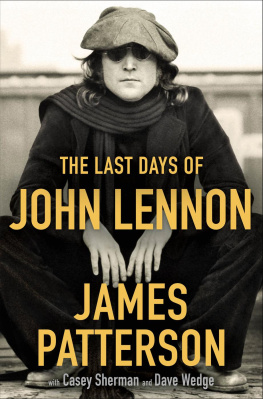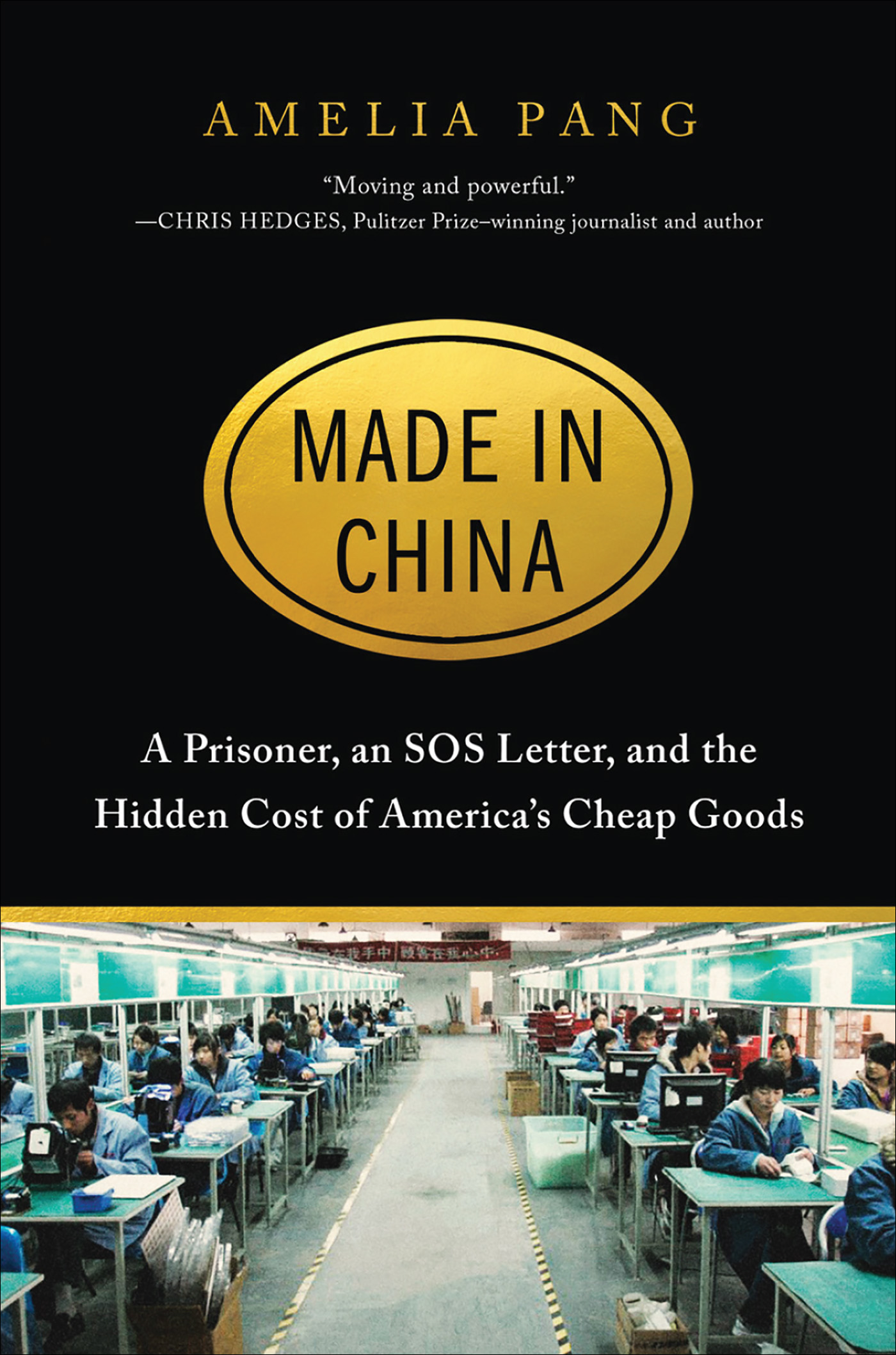Contents
Guide
Made in China

A Prisoner, an SOS Letter, and the Hidden Cost of Americas Cheap Goods
Amelia Pang

Algonquin Books of Chapel Hill 2021
For those buried in unmarked graves, waiting for wotou
Contents
Prologue
A Message from the Graveyard

It was a slow Sunday afternoon in October 2012, and Julie Keith was thinking of going to the store to buy decorations. Her daughter, Katie, was turning five, and they were getting ready for the birthday party next weekend. Katie had asked for a Halloween-themed celebration. They already had some decorations, although Julie could not remember what exactly.
She made her way outside to the storage shed to sort through what was there. She was a forty-two-year-old mother of two, of average height, with brown eyes and straight golden-brown hair. Her three-bedroom house sat at the end of a quiet cul-de-sac in Damascus, Oregon, a suburb of Portland. She opened the shed, filled with the detritus of suburban life: suitcases, pool toys, Christmas lights. Inside, nestled on a corner shelf, was something that she had forgotten was there: decorative gravestones. A relative, who had purchased the package on clearance from Kmart a few days after Halloween in 2010, had passed it on to her.
Julie brushed off the dust and read the words on the unopened package: totally ghoulrichly detailed graveyard kit has authentic look, weight and feel ! The product included four headstones, a bloody cloth, and black velvet roses.
It was perfect for not only Katies party, but also Halloween. Julie lived in an upper-middle-class neighborhood that attracted hundreds of trick-or-treaters, and her front yard, with its big slope, was a fine spot for a fake graveyard. She carried all her Halloween decorations back inside the house.
As the rays of late afternoon sun scattered through the living room skylights, Julie and Katie sat in the entryway, tearing open dusty cellophane. Julie pulled out the foam headstones. She did not notice that a piece of onionskin paper, folded in eighths, had drifted out of the box. It landed on the floor with the packaging waste.
Julie had grown up in Oregon City, a rural community that was once the final destination of the Oregon Trail. During her childhood in the 1970s, it was still small, with less than fifteen thousand souls. Her father repaired and sold fire extinguishers. Her mother taught ballet from their basement. They owned one acre adjacent to a pasture filled with hay bales, where Julie would chase her friends.
In high school, Julie was not a part of the cool crowd, but she also was not a nerd. She was, in every sense of the word, normal.
By the time she turned eighteen, she was ready to leave Oregon City, but she didnt wander far. She attended Portland State, fifteen miles away from her hometown. She graduated with a degree in sociology and psychology. She didnt know what to do with it. For the next ten years, she worked as a retail buyer for the local NBA team, the Trail Blazers, choosing which souvenirs to stock. She later worked in ground service for Alaska Airlines, driving baggage carts back and forth and enjoying free flights to Hawaii, Mexico, and Germany, before settling down as an assistant to the director of operations at Goodwills corporate office in Portland.
It was then that Julie, at thirty-four, married her boyfriend of one year, Chris Keith, a kind and burly guy with deep-set brown eyes. Chris was a self-made man who had worked his way up from electrician to foreman to general foreman. He enjoyed hunting and loved retelling a story about the time he saved his company $500,000. They had an outdoor wedding in a friends backyard. Julie gave birth to their first child a year later.
Mommy, whats this? Katie asked, picking up the paper and unfolding it.
It was a note, handwritten in blue ink. The writing was neat. But the letter was filled with crossed-out words and broken English. The author had added a few Asian characters in parentheses. It looked like an early draft of something.
Julie froze as she read the message.
If you occassionally buy this product, please kindly resend this letter to the World Human Right Organization. Thousands people here who are under the persicuton of the Chinese Communist Party Government will thank and remember you forever.
She was bewildered. Is this a prank? she thought. She kept reading.
This product produced by Unit 8, Department 2, Mashanjia Labour Camp, Shenyang, Liaoning, China. (,,, ) People who work here, have to work 15 hours a day with out Saturday, Sunday break and any holidays, otherwise, they will suffer torturement (), beat and rude remark (), no nearly no payment (10 yuan/1 month). People who work here, suffer punishment nearly 1~3 years averagelly, but without Court Sentence (unlaw punishment) (). Many of them are Falun gong practitioner, who are totally innocent people only because they have different believe to CCPG (), they often suffer more punishment than others.
A mixture of terror and disbelief shot up Julies spine as she understood the gravity of what she was holding: It was an SOS letter from the person who made her decorative gravestones. The letter had slipped past armed guards at a Chinese gulag, eluded managers at all stages of the supply chain, and traveled more than five thousand miles across the Pacific Ocean before landing on Julies forest-green rug.
She stood there, stunned. She had heard of Chinese sweatshops, but she did not realize that forced-labor camps still existed. She rushed to her laptop to Google Masanjia, clicking on the first link, a Wikipedia entry.
She read that Masanjia labor camp was established in 1956 and expanded in 1999 to make room for the followers of a newly banned spiritual movement called Falun Gong. She did another Google search, this time clicking on images . Disfigured bodies with purple, swollen faces appeared on her screen.
What could she, a nonprofit administrative assistant, do about this? She felt sick as she tried to formulate a plan.
Who do I even call?
Its Sunday... No offices are open.
Time seemed to slow down. Katies muted singsong voice hummed in the background as Julie posted about her discovery on Facebook, attaching a picture of the letter.
I found this in a box of Halloween decorations that I just opened, she wrote. Someone in a Chinese labor camp asking for help. I am going to do as they asked, I will turn this over to a Human Rights Organization...
She wanted to stop everything to read more about modern labor camps. But this was the only time she had to prepare for the birthday party next weekend. She returned to sorting decorations in a daze.
Its been two years since this package was purchased.
When was this undated letter written?
Two years ago? Five years ago? Ten years ago?
Little did Julie know, the letter that had landed in her home was one of many SOS messages written by various prisoners across China, which would emerge from stores like Kmart, Walmart, and even Saks Fifth Avenue. Consumers found notes inside a set of cupcake boxes, tucked in the zipper compartment of a purse, and hidden inside a paper shopping bag made in China. News outlets such as the













